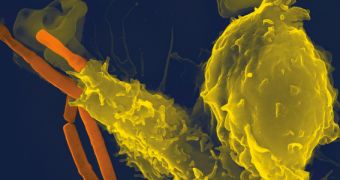Scientists with the School of Medicine at the University of Virginia (UVA) have determined in a new study conducted on children in Bangladesh that immune system traits appear to play a major role in controlling brain development, particularly during early childhood. These findings have significant implications on a number of socioeconomic and public health problems.
The investigation revealed that kids who displayed higher levels of proteins responsible for causing inflammation in their blood streams fared worse on development tests received at the ages of 12 and 24 months than peers who exhibited higher levels of proteins responsible for fighting inflammation in their blood stream.
The team was also able to determine that children in Bangladesh who suffer from fever more than others fare worse on development tests most of the times. This discovery could help explain why the incidence of cognitive impairment is so overwhelmingly high in poor areas around the world.
The lead author of the work was former UVA undergraduate student Nona Jiang, who led the research while working in the lab of Dr. William Petri, Jr. Details of the study were published in a recent online issue of the esteemed journal BMC Pediatrics, PsychCentral reports.
“Early childhood is an absolutely critical time of brain development, and it’s also a time when these children are suffering from recurrent infections. Therefore, we asked whether these infections are contributing to the impaired development we observe in children growing up in adversity,” Jiang says.
This study appears to suggest that pediatricians who fight to prevent inflammation in sick children may in fact play a role in boosting the little ones' mental abilities for the rest of their lives. As such, these discoveries highlight a potential mechanism of intervention for addressing poor mental development trends worldwide.
“By studying which early childhood influences are associated with hindrances to growth and learning, we will know better where to target interventions for the critical period of early childhood,” explains Dr. Rebecca Scharf, who is a research with the Department of Pediatrics at the university.
“I hope the scientific community will appreciate how dramatic the effects of the immune system are on the central nervous system and will invest more efforts in studying and better understanding these complex and intriguing interactions between the body’s two major systems,” adds the Director of the UVA center for Brain Immunology & Glia, neuroscience professor Jonathan Kipnis.
In addition to its own conclusions, this study also managed to come up with independent certification that other research conducted on mice – showing the roles of inflammation-fighting cytokines such as IL-4 on cognitive development – is on the right track.

 14 DAY TRIAL //
14 DAY TRIAL //